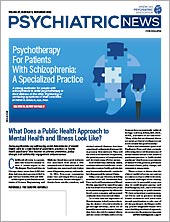Childhood adversity is a prominent risk factor for mental illness. A recent report in the Washington Post found that in Chicago alone, more than 2,400 children had seen their parents killed by gun violence between 2016 and 2020.
A 2020 report by the National Academies of Science, Engineering, and Medicine found that social isolation was associated with about a 50% increased risk of dementia and that loneliness was associated with higher rates of depression, anxiety, and suicide.
In 2015, Princeton economists Anne Case and Angus Deaton popularized the term “deaths of despair”—deaths from suicide, overdose, and alcohol-related illnesses that have contributed to diminished average life expectancy for Americans. They tied the crisis to the excesses of capitalism, the growing power of corporations, and the weakening of labor unions.
In all of these ways and many others, economic and social conditions—sometimes the creation of public policies that may be years or decades old—can be the breeding ground for mental illness.
Today some psychiatrists, including members of the APA Presidential Task Force on Social Determinants of Mental Health, appointed by immediate past APA President Vivian Pender, M.D., want to see psychiatry aggressively address the broad social, economic, and structural conditions that create mental illness.
“It is clear that the experience of discrimination, lack of access to housing, the absence of social networks to get through adversity—these are all framed by social and economic barriers that drive the risk for mental illness and the course of illness and recovery far more than our genetically endowed biology,” said Gary Belkin, M.D., Ph.D., M.P.H., a member of the task force. “Many of the drivers of mental illness are social—we haven’t really gotten our heads around that professionally.”
Belkin and others who spoke with Psychiatric News said that seriously addressing the social determinants of mental health calls for a new model of psychiatric practice—a “public health psychiatry” that focuses on promotion of mental health, primary prevention of mental illness, policy change, and community engagement.
“There is clear evidence that the clinical model [of seeing one patient at a time] as a way to address the mental health challenges of the country cannot ever be successful at any cost that we could imagine paying,” said Ken Thompson, M.D., chair of the task force’s workgroup on public health. “We have to learn how to prevent mental illness and to promote mental health because we will never have enough psychiatrists to take care of all the psychiatric challenges under any possible imaginable future. If we aren’t building this kind of approach, we are essentially guaranteeing some people are not going to get the resources they need, and they are going to become ill when they didn’t have to.”
‘The Real Failure Is a Failure of Public Policy’
So, what does public health psychiatry look like? For Thompson and his colleagues, it is a work in progress, but there is some precedent in the history of American psychiatry. Psychiatrist Leonard Duhl, M.D., who died in 2020, was the founder of the Healthy Cities movement in the 1970s. He championed the concept that creating livable cities—with fair housing, clean air, potable water, and strong communities—produces healthy people and healthy societies. Duhl’s Healthy Cities movement was adopted as a project by the World Health Organization and municipalities worldwide.
In the United Kingdom this year, the Royal College of Psychiatrists launched the Public Mental Health Implementation Centre to promote population mental well-being locally, nationally, and internationally.
“In our conceptualization of ‘public health psychiatry,’ psychiatrists use the tools of epidemiology and policy change,” said Michael Compton, M.D., M.P.H., also a member of the task force. “The goal is the promotion of mental health and the prevention of mental illnesses. As such, it is about primary prevention. We know from other areas of medicine that prevention works. In psychiatry we have not been fully convinced that prevention works—I believe it does.”
Compton said that he prefers the phrase “politico-social determinants of mental health.” At a session during APA’s 2022 Annual Meeting in New Orleans, just one day after a mass shooting left 19 students and two teachers dead at a Texas elementary school, Compton said social determinants such as social isolation or unemployment may have contributed to the shooters’ actions.
But referencing the easy access to guns, Compton added, “The real failure is a failure of public policy.”
The Need Is Urgent
Public health psychiatry also requires a new model of practice, moving out of offices treating one patient at a time to working in the community and creating partnerships and alliances that can extend access to psychiatric care.
In an October 2019 article in Psychiatric Services titled “A Path for Psychiatry to Thrive,” Belkin described the need for “task sharing” by psychiatrists and training allied health personnel and—in some cases—laypersons to extend psychiatric expertise in the community. He wrote that there is a “growing evidence base on task shifting, or task sharing, drawn largely from lower-resourced countries but increasingly appearing in research from the United States, [that] shows how a substantial number of tasks of effective treatment, prevention, and early intervention can be readily and effectively managed by nonclinicians, such as teachers, clergy, parents, community health workers, and other health extenders.”
As deputy health commissioner for New York City from 2014 to 2019, Belkin initiated ThriveNYC, an attempt by the New York City government to extend mental health care and prevention and promotion efforts into places that conventional services have had trouble reaching. It also positioned clinicians closer to areas such as primary care offices, senior centers, and homeless shelters. One component of ThriveNYC, the Early Child Mental Health Network, teaches trauma-informed pro-attachment, socioemotional skills to high-need public day care caregivers and parents. As of June 2019, this team had provided on-site coaching to 4,631 early care staff and parents, according to the Psychiatric Services article.
“When we talked to psychiatrists and other mental health professionals who participated in this, they had tears in their eyes,” Belkin told Psychiatric News. “They said, ‘This is the most gratifying thing I’ve ever done. I’m reaching people who really need this and will never come to formal care.”
Belkin said that psychiatry should be advocating aggressively for creating payment systems that invite and reward psychiatrists and mental health professionals to spread their expertise in similar ways. “At a time of an unimaginable mental health crisis, shame on us that we are not fighting tooth and nail for ways to explode our traditional concepts of access and move upstream,” he said. “All of the structural obstacles are fixable—the main obstacle is that our profession is in the dark ages and has to wake up or it’s going to become irrelevant to what promotes mental health.”
So how does a psychiatrist trained in the clinical model of care for individual patients begin to take a public health approach to treating mental illness? “I would ask that psychiatrist, where are the places that you care about?” Belkin said. “Is it your local YMCA? Your place of worship? Find the local place you care about and start to ask where the need is and how you can extend your expertise to address the need.”
APA’s Board of Trustees recently approved the creation of the Caucus on Social Determinants of Mental Health, and Thompson said members interested in building a public health psychiatry should consider joining by writing to
[email protected].
The need is urgent. “With what appears to be the end of the COVID-19 pandemic and the return to meeting in person, it is easy to think we are back to ‘normal,’ ” Thompson said. “The truth is, if you look around there is absolutely no objective evidence we are in normal times. There is no evidence that political, social, and international instability and climate challenges have relented. They are, in fact, gathering force. We can’t be complacent.”
He added, “Addressing the social determinants of mental health is inherently political. We cannot avoid the issue of politics and power in this conversation.” ■
Resources
Members interested in the Caucus on Social Determinants of Mental Health can contact
Nadia Woods.


